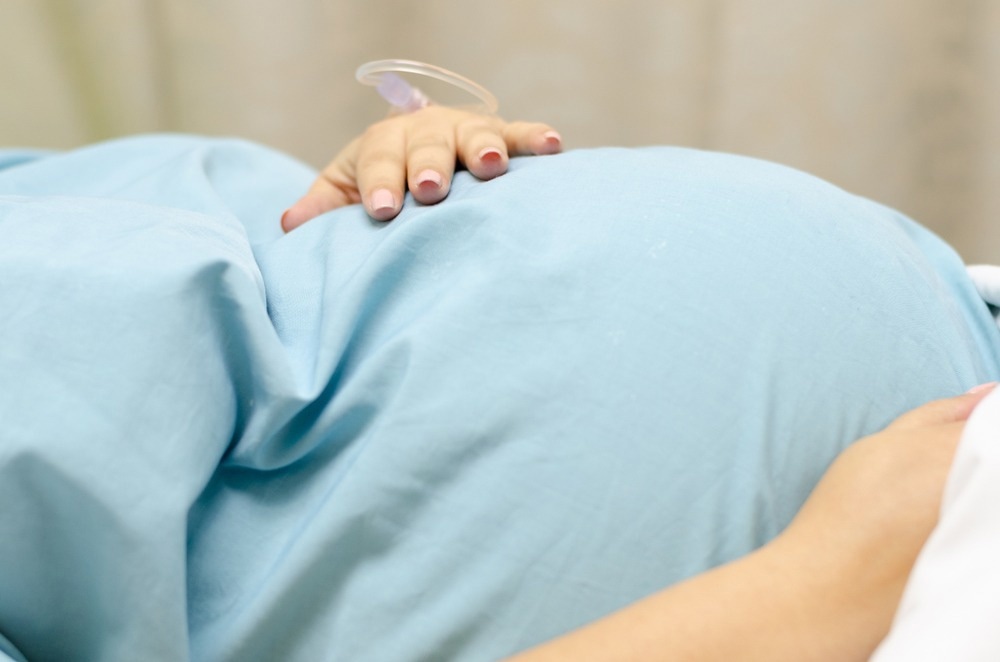The coronavirus disease 2019 (COVID-19) pandemic, which is caused by the rapid outbreak of the severe acute respiratory syndrome coronavirus 2 (SARS-CoV-2), has severely disrupted the global health care system, especially hospital-based services. Limited research is available on changes in obstetric outcomes during the pandemic.

Study: Comparison of Pregnancy and Birth Outcomes Before vs During the COVID-19 Pandemic. Image Credit: Inez Carter / Shutterstock.com
Background
Reduced routine in-person prenatal care and reproductive health service visits have been reported throughout the pandemic, which has raised concerns regarding pregnancy outcomes during this time. These concerns are more pronounced among minority racial and ethnic groups and low-income people. Additionally, medical supply chain disruptions have potentially limited the availability of essential supplies for routine obstetric care.
Limited research is available on the impact of the pandemic on obstetric outcomes at a national level. The United States Centers for Disease Control and Prevention (CDC) have expressed concerns regarding increased maternal mortality rates between 2018 and 2020; however, the underlying study did not appropriately control for different risk factors.
Results from other studies are far from conclusive, as some have documented decreased preterm birth rates, while others do not report any change in preterm births or stillbirths. Only one study analyzed pregnancy complications during the pandemic; however, the results could not be generalized, as the data were obtained from one private commercial insurer. Furthermore, data on racial inequalities in obstetric outcomes remains limited.
About the study
The current study used a nationwide hospital database to ascertain changes in maternal death during delivery, mode of delivery, and preterm births. Furthermore, the researchers were interested in assessing the rate of pregnancy-related complications and length of hospital stay (LOS) during the pandemic. Finally, any heterogeneities in obstetric outcomes across different racial groups as compared to White patients were also investigated.
Pregnant patients receiving care at 463 hospitals were included in this retrospective cohort study. Patient outcomes between March 1, 2020, and April 31, 2021, were compared to those during the pre-pandemic period between January 1, 2019, and February 28, 2020, using Poisson and Logistic models.
Patients’ characteristics, pre-existing comorbidities, as well as time, and hospital fixed effects were included as controls. Mode of delivery, mortality outcomes, as well as preterm and term births were the primary outcomes. LOS and change in pregnancy-related complications constituted secondary outcomes.
Key findings
A small but significant increase in maternal death was observed as compared to the pre-pandemic period; however, the mode of delivery and preterm births remained relatively stable. LOS post-birth and the number of live births decreased during the pandemic. No racial or ethnic differences in obstetric outcomes were noted.
The decline in live births, which was consistent with U.S. census reports, appears to be driven by pregnancies that began prior to the pandemic period. These results suggest that the pandemic might have adversely impacted pregnancy-related outcomes and obstetric care.
The mode of delivery remained stable during the pandemic, whereas pre-existing inequalities did not worsen during this period. On average, higher rates of hypertensive complications among pregnant Black patients were noted; however, they did not appear to be due to underlying inequities in care.
According to the CDC report, preliminary indications of worsening inequities in maternal deaths among non-Hispanic Black birthing mothers were noted. The current study documented consistent yet alarming results.
The incidence of SARS-CoV-2 infection was low in the study cohort; therefore, the results could be due to the overall adverse impact of pandemic-related disruptions. Such disruptions need to be minimized, even as ongoing surges in COVID-19 cases arise.
The reduced LOS was due to efforts to minimize exposure risks in the hospital. Notably, sepsis rates declined, which could be an effect of enhanced hand hygiene and masking restrictions during the pandemic. No significant heterogeneities were observed across race and ethnicity.
Conclusions
The study had several limitations, including the possibility that the results were unrepresentative of hospitals not included in the data. Owing to the observational nature of the study, causality between outcomes and exposure could not be established.
Furthermore, data limitations restricted the ability to verify precise causes of maternal death, whether people who gave birth during the pandemic had more comorbidities, and assessment of parity in the context of vaginal birth rates.
Taken together, the current study reports that while overall live births declined, the mode of delivery and preterm births remained stable. A small but alarming rise in maternal deaths was observed in mothers with hypertensive disorders, delivery hospitalization, and postpartum hemorrhage during the first fourteen months of the pandemic.
Journal reference:
- Molina, L. R., Tsai, T. C., & Dai, D. (2022) Comparison of Pregnancy and Birth Outcomes Before vs During the COVID-19 Pandemic. JAMA Network Open. 5(8). doi:10.1001/jamanetworkopen.2022.26531